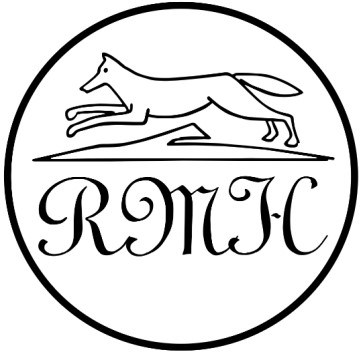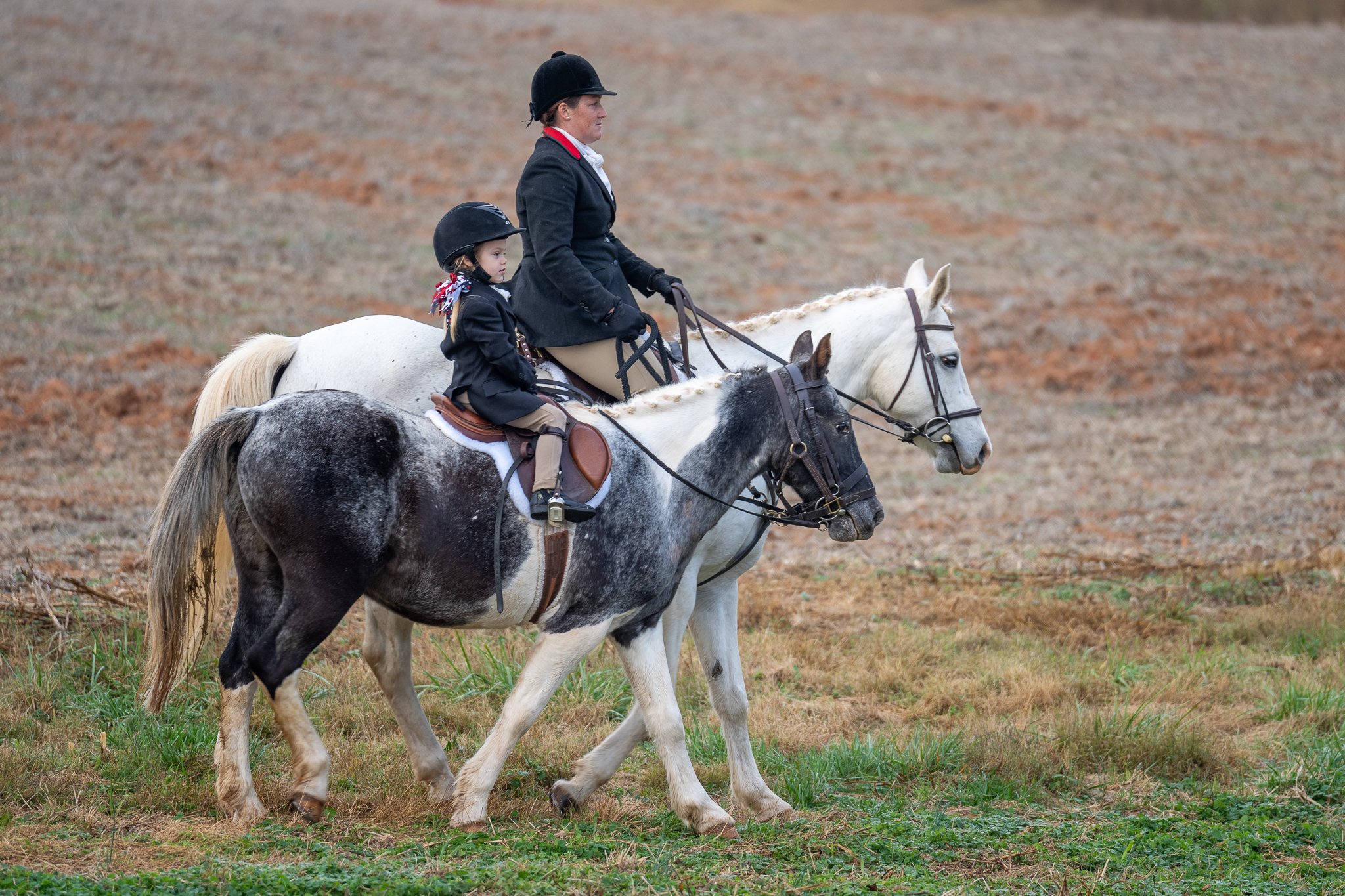RIDING TO HOUNDS
The Red Mountain Hounds (RMH) takes pride in being a club that offers congenial family-oriented fellowship, healthy outdoor activity and a love of horses and hounds to anyone who can afford to own a horse.
RMH and Kennels operate out of Rougemont, NC (approximately 20 minutes north of Durham). RMH is an organized and recognized hunt which complies with rules and regulations of the Masters of Foxhounds Association of America. Red Mountain Hounds hunts from September-March on Wednesdays and Saturdays plus additional days for joint meets with other Hunts, special events, and some holidays.
The social interaction and non-competitiveness of foxhunting at RMH is what is unique and special to this equestrian discipline. Mounted on horseback, you become part of nature’s theater- following hounds on their pursuit of quarry through the beautiful Carolina woodlands and meadows.
See the “Beginners Guide to Hunting” and the “RMH Handbook” below for more information on hunting and hunting with RMH.
HOW TO GET STARTED
Guests are welcome to hunt with RMH with permission from a Master or the Hunt Secretary. Guests can “cap” for a small fee a few times per season, or join as social members. Individual, Family, or Student full memberships are available for those wishing to join.
First-Year Full Membership $825
Individual Membership $1575
Family Membership $2075
Student Membership $775
Junior (<18y) Membership $775
Social Membership $185
Capping Fee Adults $50/Juniors $25
**If you plan to cap with Red Mountain Hounds, please contact the Honorary Hunt Secretary, and be sure to fill out the appropriate waiver below and bring a signed copy to the Hunt. Fees and waivers must be handed in before mounting**
If capping at a hunt, please check in with the Hunt Secretary the night before to inquire about any schedule changes (especially in the event of bad weather)
FREQUENTLY ASKED QUESTIONS
What type of horse do I need to fox hunt?
Any breed of horse is acceptable, but it should be sound and sensible. To begin a season of hunting, a horse should be fit enough for a vigorous 1-2 hour trail ride. Conditioning for the longer hunts, 2-4+ hours, evolves through the season of hunting itself. A horse’s feet need to be tough against gravel and rocks to avoid bruising; one may consider front pads for horses with sensitive soles. The most mandatory quality required by a rider is control over his/her mount. This is critical to the safety and enjoyment for oneself and other riders. Fox Hunting is a learned discipline for most horses. They will learn to gallop sensibly in a group, stop quickly, stand quietly and maneuver around obstacles.
How experienced a rider must I be to fox hunt?
To foxhunt, a rider should be confident and comfortable at a walk and trot to ride with the Hilltoppers, and at a canter and hand gallop for the faster fields. They should have some experience trail riding and riding with a group. Experience in jumping would be helpful but is not mandatory as all jumps are optional.
What tack and/or attire is required?
Fox hunting is a sport based on tradition and convention, thus proper tack and attire is required. For the horse, plain brown or black English tack, and a fitted white saddle pad are traditional. A hard hat must always be worn while hunting. Formal attire consisting of a plain black or dark hunt style coat with a white shirt, white stock tie and plain gold pin, tan or buff breeches, and tall black boots, is always proper. However, a newcomer doesn’t need to immediately purchase hundreds of dollars’ worth of riding equipment and apparel… newcomers are encouraged to outfit themselves with at least some of the basic tack and attire, but our members are happy to lend you what else you need until you commit to the sport.
Isn’t fox hunting "a rich man’s sport”?
There is a subscription fee to join the Hunt. Subscription fees are different for students, individuals and families. This fee helps to cover the costs of the huntsman’s salary and the year-round care and management of the hounds and kennels, and is relatively low compared to the cost of attending horse shows. All other expenses and labor are volunteered.




